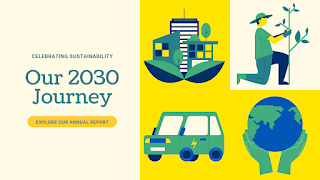"Sustainable Practices for a Greener Tomorrow"
In an era defined by rapid industrialization and urbanization, the importance of adopting sustainable practices to protect our environment cannot be overstated. As the global population continues to grow, so does the demand for resources, putting immense pressure on our ecosystems. To ensure a harmonious coexistence with nature, it is crucial to implement measures that promote environmental conservation and mitigate the impact of human activities.
One significant aspect of sustainable living revolves around energy consumption. Transitioning to renewable energy sources, such as solar and wind power, is essential to reduce our reliance on finite fossil fuels. Embracing these cleaner alternatives not only curtails greenhouse gas emissions but also fosters a more resilient energy infrastructure.
Moreover, the conservation of biodiversity is paramount in maintaining ecological balance. Deforestation, driven by the expansion of agriculture and urban areas, poses a severe threat to countless species. Implementing reforestation initiatives and preserving natural habitats are pivotal steps in safeguarding the diverse array of life on our planet.
Water, a finite resource, is another area that demands careful consideration. Adopting efficient water management practices, reducing pollution, and investing in water conservation technologies are critical to ensure a sustainable water supply for current and future generations.
The concept of a circular economy is gaining prominence as a means to minimize waste and resource depletion. By emphasizing recycling, reusing, and reducing, we can significantly decrease the environmental impact of our consumer-driven society. Companies embracing eco-friendly production methods and consumers making mindful choices contribute to the creation of a more sustainable and resilient economy.
The impact of climate change is undeniable, and addressing this global challenge requires collaborative efforts. Governments, industries, and individuals must unite to reduce carbon emissions and adapt to changing climatic conditions. Sustainable urban planning, resilient infrastructure, and the promotion of eco-friendly transportation are integral components of a climate-resilient future.
Educating the public about the importance of environmental conservation is fundamental. Building awareness and fostering a sense of responsibility among individuals can lead to widespread adoption of sustainable practices. Small changes in lifestyle, such as reducing single-use plastics, conserving energy, and supporting environmentally conscious businesses, can collectively make a significant difference.
In conclusion, creating a sustainable future necessitates a holistic approach that encompasses energy, biodiversity, water, waste, and climate. Embracing renewable energy, preserving biodiversity, managing water resources wisely, adopting circular economy principles, and promoting environmental education are key components of a comprehensive strategy. By implementing these measures, we can pave the way for a greener tomorrow, where humanity coexists harmoniously with the environment, ensuring the well-being of present and future generations.









Comments
Post a Comment